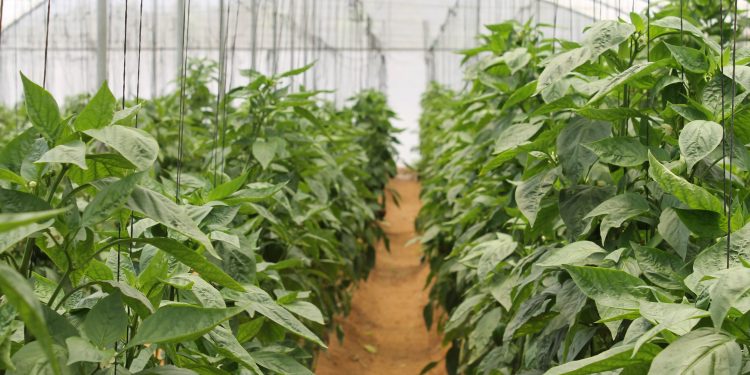The integration of aquaculture and hydroponics, known as aquaponics, is emerging as a groundbreaking method for sustainable food production. A recent study delves into the efficiency of growing baby leaf vegetables using wastewater from rainbow trout in a vertical decoupled aquaponic system, offering promising insights for investors and entrepreneurs in the agricultural sector.
Materials and Methods
This study evaluated the performance of baby lettuce and rocket plants cultivated in a high-tech vertical aquaponic system. The system utilized three different nutrient solutions:
- Fish wastewater only (designated as Fish)
- Fish wastewater enriched with synthetic fertilizers (Mix)
- A typical nutrient solution (Hoagland) as the control
The plants were grown in two different substrates, peat and perlite, to assess their performance in organic versus inert growing mediums. Key metrics such as yield, growth, nitrate concentration, foliar analysis, photosynthetic rate, and leaf color indices were measured to determine the efficiency and sustainability of each treatment.
Results and Findings
The study revealed significant findings in terms of resource use efficiency:
- Land and Water Efficiency:
- The Mix–Peat treatment emerged as the most efficient combination, achieving approximately 7% better land use efficiency while using 38% less water and 10% less fertilizer compared to the Hoagland–Peat treatment.
- Yield and Quality:
- Lettuce: The highest yield was recorded in the Mix–Peat treatment, with a yield of 2,497 g/m², which is about 6% higher than the Hoagland–Peat treatment, without compromising on quality.
- Rocket: Conversely, the Hoagland–Peat treatment resulted in a significantly higher yield for rocket, being 18% higher than Mix–Peat and 30% higher than Fish–Peat.
Implications for Sustainable Agriculture
The findings underscore the potential of aquaponic systems to enhance water use efficiency and reduce reliance on synthetic fertilizers without sacrificing crop yield and quality. The vertical decoupled aquaponic system evaluated in this study shows promise in increasing land use efficiency, making it an attractive option for urban and space-constrained farming environments.
Opportunities for Investors and Entrepreneurs
For entrepreneurs and investors seeking sustainable and innovative opportunities in agriculture, vertical aquaponics offers a compelling proposition. By integrating fish farming with hydroponic plant cultivation, these systems can significantly reduce resource consumption and operational costs. Additionally, the high yield and quality of produce, combined with the environmental benefits, position aquaponics as a forward-thinking solution for future food production challenges.









